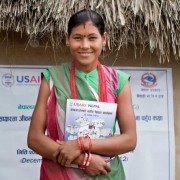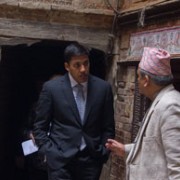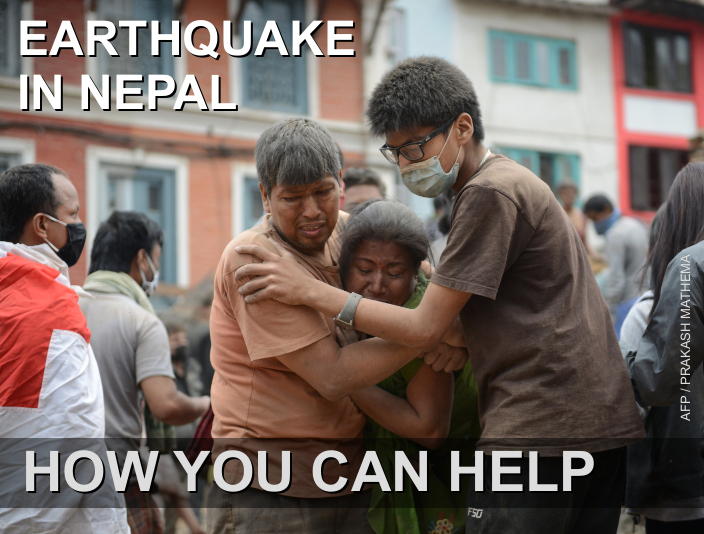The U.S. Mission in Nepal, through the U.S. Agency for International Development (USAID), will contribute $500,000 in food assistance to the UN World Food Program in Nepal to support existing flood and landslide relief efforts by the Government of Nepal and other humanitarian aid partners. The U.S.
The U.S. Mission in Nepal, through the U.S. Agency for International Development (USAID), will provide a total of $402 Million over the next five years to Nepal. In a brief ceremony at the Ministry of Finance today, Mr. Madhu K. Marasini, Joint Secretary of the Ministry of Finance, and Dr. Beth Dunford, Mission Director of USAID/Nepal, signed an assistance agreement on behalf of the two governments.
USAID Nepal is calling upon innovative problem-solving, for-profit companies, non-governmental organizations and associations, private sector stakeholders, academic/educational research institutions, civil society and foundations – individually or in partnership – to take up the challenge of finding innovative solutions to sustainable food security. The contest, organized through USAID’s Feed the Future program in partnership with the agribusiness firm NIMBUS, is open to Nepali organizations. It will be open for entries until October 15, 2014. A minimum of one grant for up to $50,000 will be awarded in each of the two categories: 1) grant to pilot a new idea and 2) grant to scale-up a proven concept.
The U.S. Mission in Nepal, through the U.S. Agency for International Development (USAID), today announced three new programs with up to $70 million in funds that will help communities more quickly recover from natural disasters and other stressors. The announcement came at a Resilience Summit organized in Kathmandu.
The U.S. Mission in Nepal, through the U.S. Agency for International Development (USAID), will contribute more than $450,000 in food assistance to the UN World Food Programme in Nepal to support existing flood and landslide relief efforts by the Government of Nepal and other humanitarian aid partners. The U.S. contribution will enable the World Food Programme to purchase approximately 450 metric tons of locally and regionally produced rice, legumes and other important food commodities.

The U.S. Agency for International Development (USAID) will build the skills of 48,000 Nepalis in the west, mid-west and far-west regions in literacy, numeracy, entrepreneurship, financial management, and life skills as part of a new, three-year, $4 million Business Literacy project. The project is part of the U.S. Government’s five-year, $66 million Feed the Future Initiative in Nepal that aims to raise incomes and improve livelihoods for vulnerable households.

Today, USAID Administrator Dr. Rajiv Shah completed a two-day visit to Kathmandu, during which he announced approximately $100 million in support of the people of Nepal subject to the availability of funding. Dr. Shah met with Prime Minister Sushil Koirala and other key political leaders and spoke at the closing session of the Nepal Economic Summit, where he stressed the private sector’s role in accelerating Nepal’s economic growth. Dr. Shah also visited sites that highlight USAID’s commitment to using innovation, science, technology, and partnerships—with the Nepali government, civil society, and the private sector—to deepen development impact.
Today, Dr Rajiv Shah, Administrator of the U.S. Agency for International Development (USAID), visited the International Centre for Integrated Mountain Development (ICIMOD) to discuss the role of science and technology in development and to experience firsthand the dynamic tools being developed to help monitor the environment and inform development decisions in the Hindu Kush Himalayas.
A simple, low-cost antiseptic that may cut the odds of infant illness and death from early infections is one of the Grand Prize winners of the USAID’s 2013 Science and Technology Pioneers Prize. Offered for the first time by the USAID Office of Science and Technology in Washington D.C., the prize recognizes excellence in the use of science, technology, and innovation to solve development challenges.









Comment
Make a general inquiry or suggest an improvement.